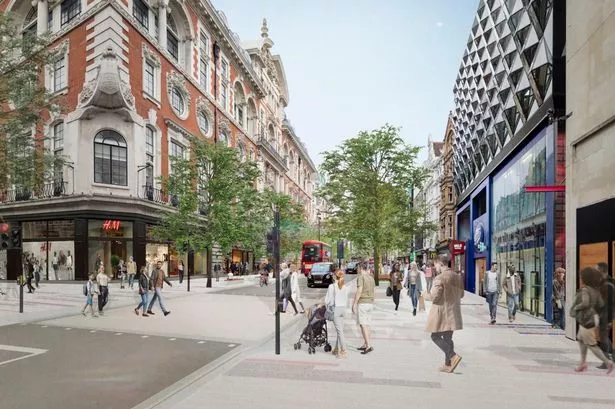The ambitious £90 million regeneration project planned for Oxford Street, one of London’s most iconic shopping destinations, has been officially scrapped by Westminster City Council. This decision marks a significant shift in the council’s strategy, driven primarily by a need to recoup substantial funds already invested in the now-abandoned scheme. The project, initially conceived to revitalize the area and enhance its appeal in the face of declining footfall and the rise of online retail, envisioned a pedestrianized zone, improved public spaces, and enhanced transportation links. Its cancellation signals a re-evaluation of priorities and a renewed focus on fiscal prudence. The council’s decision, while potentially disappointing to some stakeholders, reflects the challenging economic climate and the evolving landscape of retail, forcing a reassessment of large-scale urban renewal initiatives.
The Oxford Street regeneration project aimed to address a confluence of challenges facing the renowned shopping district. The rise of e-commerce had significantly impacted traditional retail, leading to decreased footfall and store closures. The area also suffered from congestion and pollution, detracting from the overall shopping experience. The council’s plan sought to transform Oxford Street into a more pedestrian-friendly environment, attracting both residents and visitors. The proposal included widening pavements, introducing more greenery, improving accessibility, and enhancing public transport connections. The goal was to create a more vibrant and attractive destination capable of competing with online retailers and other leisure options, ensuring the long-term viability of the iconic street.
The cancellation of the project stems from a complex interplay of factors, with financial considerations playing a dominant role. Westminster City Council is facing significant budgetary pressures, compelling them to prioritize fiscal responsibility and seek cost savings. The project’s escalating costs, coupled with uncertainty about its potential returns, likely contributed to the decision. The council now faces the daunting task of recovering the funds already committed to the abandoned scheme. This will undoubtedly require careful financial maneuvering and a re-allocation of resources, potentially affecting other planned initiatives. The council’s focus will likely shift towards smaller-scale, more financially sustainable projects that address immediate needs while minimizing financial risk.
The decision to abandon the Oxford Street regeneration has elicited mixed reactions from various stakeholders. Businesses along Oxford Street, while initially supportive of the project’s potential to boost trade and revitalize the area, may now express concerns about the future of the district and the lack of a cohesive plan to address its ongoing challenges. Residents, who might have anticipated improved public spaces and reduced congestion, may also be disappointed by the cancellation. Environmental groups, who saw the project as an opportunity to create a more sustainable urban environment, will likely express regret at the missed opportunity to reduce pollution and promote greener practices. The council’s challenge is to address these concerns and articulate a revised vision for Oxford Street’s future that acknowledges the current financial constraints.
Looking forward, Westminster City Council will need to develop a revised strategy for Oxford Street that aligns with its current financial realities. This might involve exploring smaller-scale, incremental improvements that address immediate concerns such as pedestrian safety, traffic management, and public realm enhancements. The council may also seek to collaborate with businesses and other stakeholders to develop innovative solutions that require less public investment. Exploring alternative funding mechanisms, such as public-private partnerships, could also be a viable option. The council’s revised approach will likely emphasize pragmatism and a focus on achievable outcomes within a constrained budget, demonstrating a commitment to responsible fiscal management while still striving to enhance the vitality of Oxford Street.
The cancellation of the Oxford Street regeneration project underscores the broader challenges facing urban development in the 21st century. The rise of e-commerce, evolving consumer behaviour, and increasing financial pressures on local governments necessitate a rethinking of traditional urban renewal approaches. Large-scale, costly projects may no longer be feasible or prudent in many contexts. Cities will need to adopt more agile, adaptable strategies that prioritize flexibility, community engagement, and sustainable solutions. The case of Oxford Street serves as a valuable lesson for other cities grappling with similar challenges, highlighting the need for careful planning, realistic budgeting, and a willingness to adapt to changing circumstances. The future of urban regeneration lies in finding innovative, cost-effective solutions that enhance the quality of life for residents while fostering economic vitality within the context of a dynamic and ever-evolving urban landscape.














